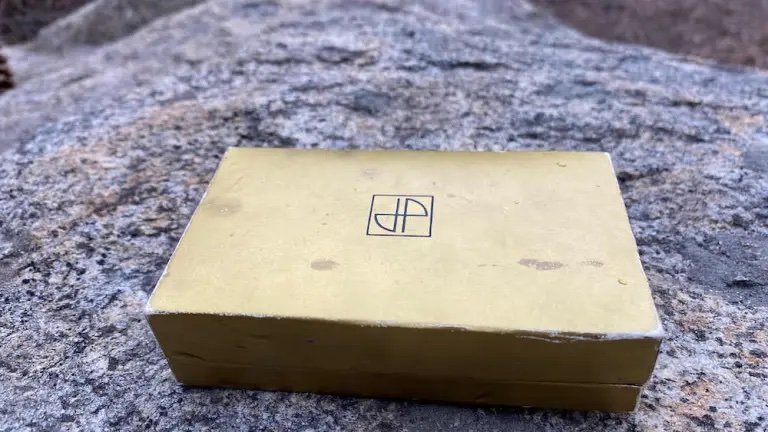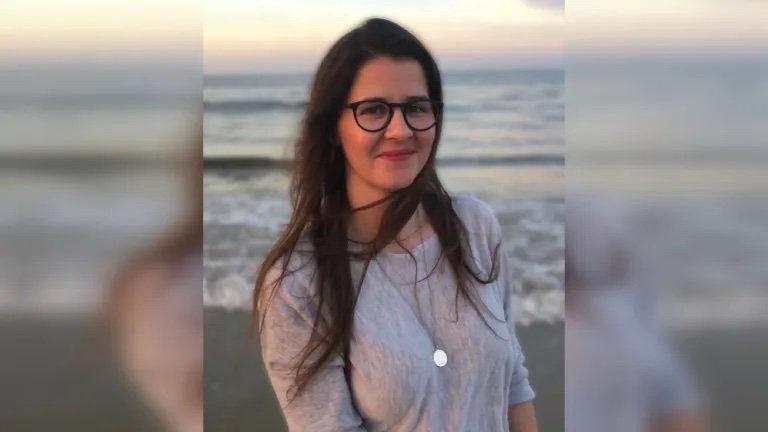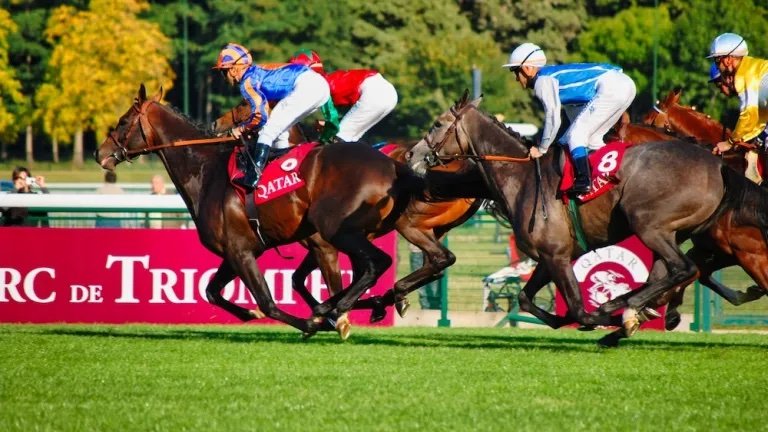Tour Guide
After being incarcerated for nearly a decade, I have finally made it to a minimum-security facility. In the federal system, these facilities are referred to as camps, typically companion facilities to a United States Penitentiary. This dual-facility complex, U.S.P Lee and Camp Lee, is located in Virginia, wedged between southeast Kentucky and northeast Tennessee. The heart of Appalachia.
frank: sonnets by Diane Seuss
I first opened Diane Seuss’s new collection, frank: sonnets, in Maria Hernandez Park in the Bushwick neighborhood of Brooklyn on one of the first sunny days of Spring.
Joy
The perfume is called Joy, but the black box looked sinister to me as a kid, funereal; it looked like it should hold ashes, cigarettes, a lifeless heart. The perfume didn’t smell joyful to me, either—it smelled like sugar laced with poison. I couldn’t understand why my mother loved it so, why my father bought it for her so religiously—tiny bottles in a cushioned box, a larger bottle for extra special occasions. I was told it was expensive, rare, told it was the most generous gift, but it bothered me, felt like something between my parents I couldn’t access, some terrifying adult brand of joy.
The Poet as a Revolutionary Force – A Review of Cedar Sigo’s Guard the Mysteries
Guard the Mysteries (Wave Books, 2021) is a collection of five talks given by poet Cedar Sigo for the Bagley Wright Lecture Series in 2019. His scope is broad, considering everything from poetry’s potential as a revolutionary force to concepts of identity, personal and shared histories, and the life and work of poets who have been influential in his practice. But “lectures” would be too reductive of a word for what Sigo has accomplished. Each talk works in dialogue with the others, oscillating fluidly between different themes and ideas, rhythmically building towards a satisfying culmination. The lectures, presented over several months, achieve an orchestral resonance when read consecutively. Sigo touches the heart of what it means to not only be a poet, but to be living. That is not to say these talks lose themselves in abstract, ethereal concepts—they are teeming with interesting anecdotes about key figures in America’s literary and activist history, and are firmly grounded in the real world. Writers and readers alike will find this work enriching and informative.
Review: Of Women and Salt by Gabriela Garcia
From the cigar factories of 19th century Cuba to sleazy Miami nightclubs and a family detention center in Texas, Gabriela Garcia’s debut novel, Of Women and Salt, follows the lives of women fighting to survive in countries and relationships hellbent on destroying them.
Dear John Ashbery
Everything is behind a chain linked fence and I think I might have tennis elbow. I’ve trained for this my whole life and now here we are with no words in the night sky. They fly to the moon to recharge, before dusk, especially in December. Christmas carolers are practicing Jingo Bells in their driveways and the clouds are about to pop. Glitter will get everywhere, but hopefully not in our exhaust pipes. I can see this beautiful mess when I close my eyes and listen to you reading on the other side of the tulips. I didn’t think your voice would get through, but the ground is still soft. Now that I am getting to know your absence it’s easier to describe the texture of sound, real or imagined. It’s like holding the moon in one hand and memorizing it with the other. Haven’t you responded to the moon before you served it on a fat slice of wheat bread? (Here’s the recipe: heat du jour, filtered water, cultured wheat, sea salt, whole grain einkorn.)
Getting In The Game: An Interview With Jordan E. Franklin
Jordan E. Franklin is a Brooklyn based poet with two projects coming out in 2021 – When the Signals Come Home, a full-length collection from Switchback Books which won the Gatewood Prize, and a chapbook entitled boys in the electric age which will appear with Tolsun Books. In this interview, she talks with Columbia poetry MFA candidate Catherine Fisher about music, family and being a native Brooklynite.
Lifting the Bird’s Feather: A Love Letter to Interpreting
Tiffany Troy, Assistant Translation Editor for Columbia Journal, spoke with poet, educator, and interpreter Judith Small to discuss the magic of language learning, the musicality of traversing languages, the ethics of interpretation and the deeply human prayer in Second Tongue (Brighthorse Books, 2019).
Eggbert
It isn’t so much that my brother lives on the freer side of a prison wall, or that when I’m released—sometime after 2024—I will have spent more years inside than I have lived in the outside world. What’s useful for you to know is that I will bring home with me an overflowing collection of memories, both terrific and terrible, of the people I met in this razor-wired land of misfit toys and wayward boys. It’s the memory of these people that will drag me home alive.
How We See
After twenty-five years, my mother is having the third dinner date of her life. The first was an Italian man with a motorcycle. Second, an American who gave her a great wedding, dual citizenship, two children, then left her for an American woman. This time it is a Russian man with only one eye.
3 Poems by Daniel Varoujan Translated From The Armenian
Muse of my ancestors, tell me how the plowman,
grabbing the crooked horns of his plow,
tears the barren breast of the earth;
Forms of Obsession
These paintings are about touch. The forms are diagrammatic and bodily, internal and external, and capsules or cross-sections. These paintings need to come together in one day, a record of a specific time and a sustained focus.
A Conversation with Kristen Arnett
Victoria Rucinski, online fiction editor at Columbia Journal, spoke with New York Times bestselling author Kristen Arnett, writer of the debut novel, Mostly Dead Things, upcoming novel, With Teeth, and the fiction judge of the 2021 Columbia Journal Spring Contest.
Announcing Columbia Journal Issue 59
The editors at Columbia Journal are delighted to announce the new print issue of Columbia: A Journal of Literature and Art. Columbia Journal’s Issue 59 features work by Ada Limón, Tao Lin, Tea Hacic-Vlahovic, K-Ming Chang, Yuji Agematsu, Joshua Wheeler and more.
Exactly So
We went to the track before I went to camp. Every summer I shipped out to a Jewish camp on a lake, had my Jewish friends, my Jewish life, my Jewish girl, Talia. At home, we were unreligious. If anything, we were a little Christian, with the tree in December, the egg hunt in April, the Eggos. We were one of the few Jewish families in town and rather than the scarcity bringing us closer, it brought us a certain spiritual sleepiness. My going to camp every summer was our most Jewish tradition. This would be my last year as counsellor. My mother suggested that I spend some quality time with my brother before I left. I wouldn’t see him for six glorious weeks. I was eager for this reprieve. It was the only time I felt like I got free from myself. I was ready to appease my parents in any way, lest they keep me home. When I asked Alex what he wanted to do, he told me: the track.
Feeding the Poetic Demon with Douglas Kearney
If crossing Dionysian boundaries is true poetry, then no one makes the poetry demon swoon like Douglas Kearney does. Kearney is a star-studded poet, performer, and librettist. Accolades include a Whiting Award and fellowships from Cave Canem and the Rauschenberg Foundation. Kearney has published six collections, including Buck Studies (Fence Books, 2016), Someone Took They Tongues (Subito, 2016), and Mess and Mess and (Noemi Press 2015). His latest poetry collection, Sho (Wave Books, April 2021), provides a kaleidoscope of splintered selves and voices. In Sho, the speakers of Kearney’s poems are at once the antagonistic tricksters who enchant you (“I aspire to be a CVS: Lord”) and at once the documenters of historical and current wrongs (“Black wench! Clipped finches’/ shrill in brass lattice.”)
Retail Paper
A leaf placed upon the vase
lost from leaves. I turn
the corner to a thudding car lost
in the blank street of soft pleats.
Lost in shedded winter down.

















































